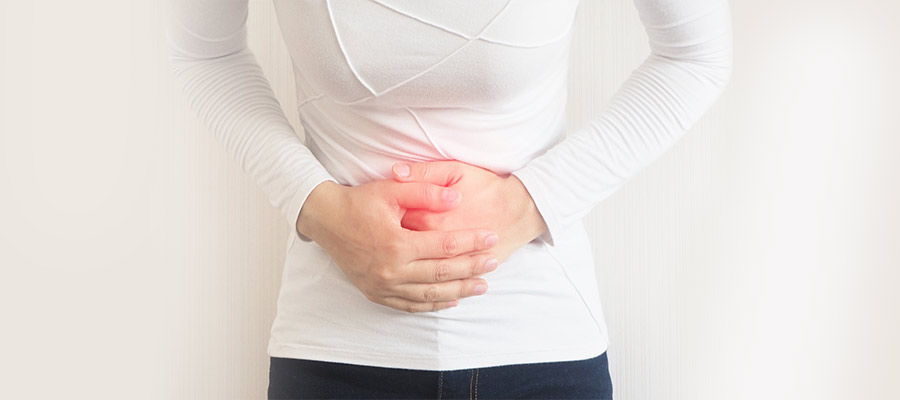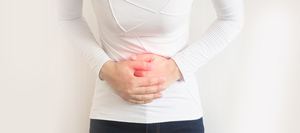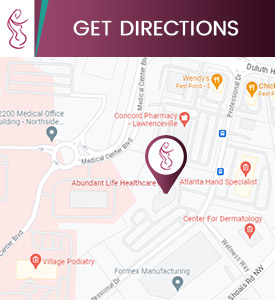Fibroids Specialist in Lawrenceville, GA
Fibroids are muscular tumors that develop in the uterine (womb) wall. The majority of fibroids are harmless (not malignant). Sometimes these tumors grow fairly large, producing intense stomach pain and irregular periods. For more information, contact us or schedule an appointment online. We are conveniently located at 601A Professional Drive, Suite 370 Lawrenceville, GA 30046.


Table of Contents:
What are fibroids?
What are the common symptoms of fibroids?
What causes fibroids?
How are fibroids diagnosed?
How are fibroids treated?
Every woman experiences menopause differently, but at some point between the ages of 45-60, your body’s production of hormones slows and your menopause begins. Dr. Marc Jean-Gilles and his team at Abundant Life Healthcare in Lawrenceville, Georgia, offer compassionate and effective menopause management strategies, including hormone replacement therapy. Call or make an appointment online today to learn more about your treatment options.
Fibroids are benign growths that develop in or on the walls of your uterus. Fibroids can range in size from very small to the size of a grapefruit — and in rare instances, even bigger.
Fibroids aren’t associated with cancer but can cause painful and disruptive symptoms. If left untreated, fibroids can cause problems with fertility.
The most common symptom of fibroids is abnormally heavy menstrual bleeding. Menstrual bleeding is considered abnormal if you need to change your tampon or sanitary towel more than once an hour for several consecutive hours.
Also, if your period lasts for more than 7 days or if you need to wake up during the night to change your sanitary device, it’s considered abnormally heavy.
Other symptoms of fibroids include:
• Pelvic pain
• Frequent urination, but difficulty emptying your bladder completely
• Constipation
• Pain in your back or legs
You should make an appointment with Dr. Jean-Gilles if your period is heavy, painful, or lasts more than a week. There are many conditions that could cause these issues, and the sooner Dr. Jean-Gilles can diagnose your problem, the sooner you can start treatment and find relief.
The exact cause of fibroids is currently unknown, however, there are some trends that can show whether you’re at risk. There’s a genetic element, and the hormones that trigger the development of your uterine lining can also promote the growth of fibroids.
Studying uterine fibroids has revealed higher levels of estrogen and progesterone receptors than healthy uterine tissue. Also, fibroids are less common after menopause when your hormone levels decrease.
Some environmental factors also contribute to your risk of developing fibroids, including:
• Starting menstruation at an early age
• Birth control
• Obesity
• Poor diet
• Vitamin D deficiency
If Dr. Jean-Gilles thinks that you have uterine fibroids, he orders additional testing — like blood work and ultrasounds — to confirm his diagnosis. Often, an ultrasound will reveal the fibroids.
If necessary, he may also order further diagnostic imaging services — like an MRI or a hysteroscopy — that provide more detail about any growths in your uterus.
Dr. Jean-Gilles offers a variety of treatments to treat your fibroids. He may suggest medications to shrink your fibroids like oral contraceptives or gonadotropin-releasing hormones.
If your fibroids are large, unresponsive to other treatments, and are causing symptoms that disrupt your life, Dr. Jean-Gilles also offers minimally invasive procedures like myomectomies, endometrial ablation, or myolysis to destroy and remove the fibroids.
If you’re concerned about abnormal bleeding or think you have uterine fibroids, call or make an appointment online today.

Additional Services You May Like

Additional Services You May Like
- Obstetrics
- Pregnancy
- Gynecology
- Birth Control
- Labiaplasty
- Microblading
- Weight Loss
- Semaglutide
- Pap Smears
- Pelvic Pain
- Laser Hair Removal
- In House Ultrasound (Including 3D)
- Vaginal Birth After C-Section (VBAC)
- Pregnancy As High Risk
- Multiple Gestations
- Postpartum Counseling
- 24hour/365days On Call Service
- Annual Exam
- Abnormal Uterine Bleeding
- Management Of Endometriosis
- Ultrasound
- Pelvic Organ Prolapse
- Urinary Incontinence
- Perimenopause And Menopause
- Sexual Dysfunction
- Fat Freeze (Like Cool Sculpting)
- Body Contouring



